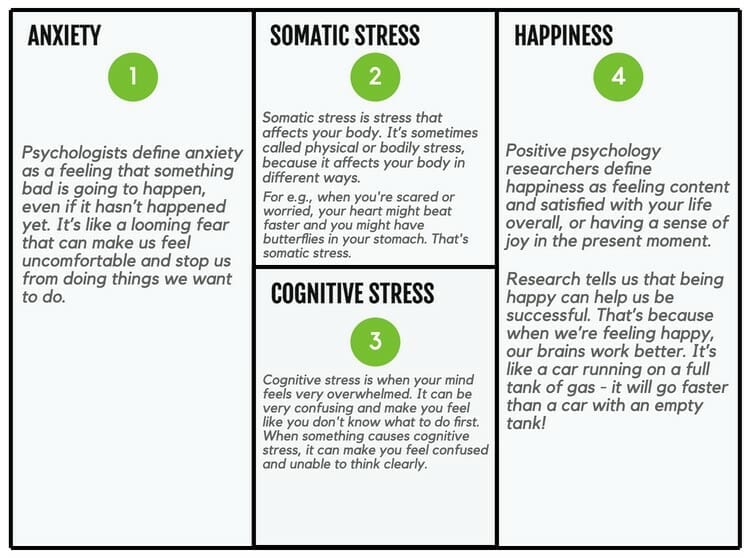Thrive Framework
Emotion Regulation
One of the biggest misconceptions of emotions is that we cannot control them. You may feel stressed all the time and you feel like you are not in control to change it. However, you can modify your emotions. You don’t have to be the victim of your emotions. You can change the way you think and behave to affect the way you feel.
Another misconception of controlling your emotion is that you have to suppress them and be emotionless like a robot. However, regulating your emotion is not the same as suppressing them. Suppressing your emotion might actually harm you. A study by the Harvard School of Public Health and the University of Rochester found that bottling up your emotions increased your likelihood of cardiovascular diseases and cancer. Suppressing emotions also reduces your ability to form and recall memory and make it more likely for you to have emotional outbursts in the future (Richards & Gross, 2000).

Regulating your emotion is a process in which you influence your emotions in order to have a more productive response according to your circumstances. If you have poor emotion regulation, you are more likely to fall prey to negative thoughts and feelings that lower your productivity, health, and happiness. Eventually, poor emotional regulation will put you in a downward spiral of feeling unhappy and unproductive.
Being aware of the emotions you experience and the thoughts that cause them is foundational to regulating your emotions. When you have self-awareness, you lend yourself to learning the techniques necessary to regulate your thoughts and inner dialogue. The way you interpret your circumstances affects the way you feel about them. It is also important to incorporate habits that would help your psychological and physiological state to be more balanced, such as getting enough sleep, tweaking your self-talk, breathing, working out, etc.
FREE QUIZ: Do You Have The Mental Strength To Make This Your Best Year Yet?

We all know that psychology plays a major role in our success or failure in any endeavour. But how well do we really understand and master our own psychology?
Do you know what mental tools to use to face the challenges ahead of you?
To find out, take this quiz to assess your readiness.

